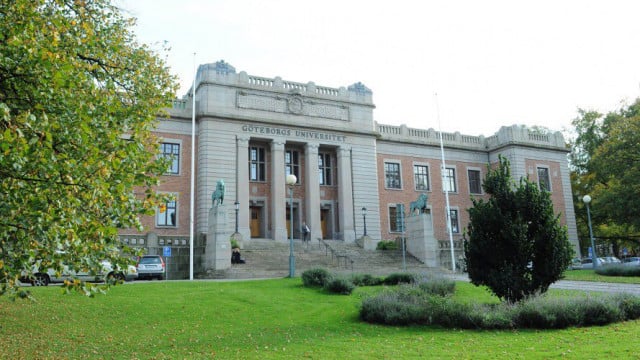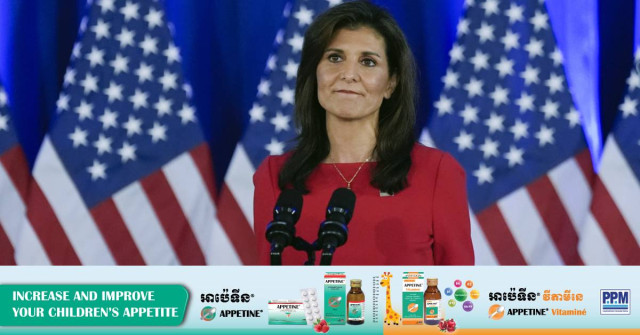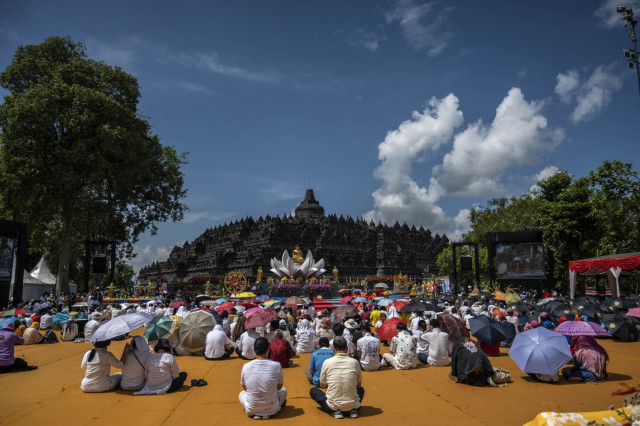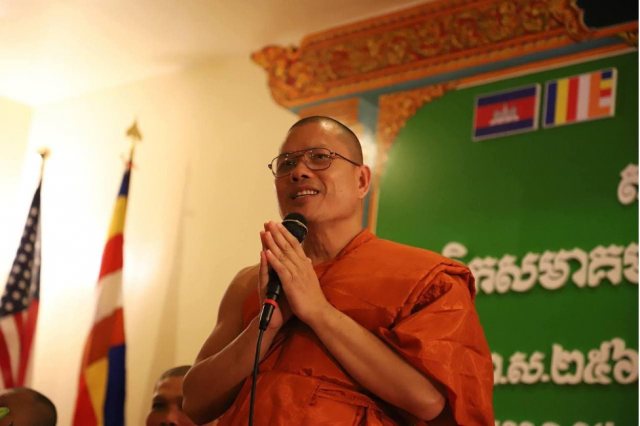Studying in Sweden

- Sao Phal Niseiy
- October 18, 2020 8:58 AM
According to a Cambodian Student, this is about learning at university as well as from society
Sangva Phoungvyna is currently taking a two-year master’s degree program in global studies at the University of Gothenburg through support from the Swedish Institute. During an interview, she shared her perspective and experiences on how she managed to obtain this scholarship.
Sao Phal Niseiy: You are currently pursuing a degree in global studies in Sweden under the Swedish government's scholarship program. Why has Sweden been your choice for higher education?
Sangva Phoungvyna: Before getting the scholarship, I had an eye on Nordic countries as a choice for pursuing my higher education. I got inspired by how these countries have become world-known for their social democratic governments, and they rank each year among the top 10 countries in the World Happiness Report. Specifically, Sweden is well-known as a freedom and gender-equality country, which prompted me to focus on studying in this country.
For me, besides a good quality of education, it is also essential to study in a country that allows me to observe and learn their system of good governance and sustainable development.
Sao Phal Niseiy: Can you share more with us on the scholarship and how to stand a chance to get it?
Sangva Phoungvyna: The Swedish Institute Scholarships for Global Professionals (SISGP) is a fully-funded scholarship for master's degrees in Sweden. It is funded by the Ministry for Foreign Affairs of Sweden and administered by the Swedish Institute. The scholarship aims to enable SISGP scholarship holders to play an active role in the positive development of the societies in which they live through what they have learned and experienced from the Swedish society and culture.
The scholarship application may be a little bit different from other scholarship programs that you have applied for in Cambodia. For the SISGP, there are two main stages. First, you need to apply for school admission as does everyone who wishes to study in Sweden. Second, after you submit all your school admission documents and are waiting for the result, you need to apply for the SISGP scholarship. It might sound a bit confusing, but if you go to this website, all the information and step-by-step explanation are there.

According to the scholarship committee, to stand a chance to get this scholarship, one must be equipped with academic qualifications, demonstrated work and leadership experience, ambition to make a difference by working with issues that contribute to a just and sustainable development in one’s country. Hence, you must have work experience and goals to study in Sweden that are linked to each other and can contribute to your society when you return to Cambodia. I suggest you be clear with your short and long-term goals with the major you are choosing and try to reflect on what kind of accomplishments—whether it is in your professional or volunteering work—you have achieved in Cambodia so far. Not only that, be prepared. There are several documents you need to submit. Besides your writings, your reference letters and a "proof of work and leadership experience" letter are also significant to make you stand out during the scholarship evaluation. So be prepared and seek support early from people in your workplaces or volunteer organizations.
If you cannot make it on your first attempt, why not try until you do? Not everyone who applies for a scholarship once gets it immediately. You need to be persistent, know what you really want from the scholarship and work hard to get it.
Sao Phal Niseiy: Why does this Global Studies program matter to you? Why should we consider this course?
Sangva Phoungvyna: For me, this major is an eye-opening program that can extend my knowledge beyond the complexity of social issues during this phase of globalization. Everyone is affected by global relations since we are living and connecting in a world system. Of course, this program provides me with a deeper understanding of the world throughout research, which is essential in my future work as someone who is working toward equality and and inclusive society. If you are interested in this major, be well-inform that it is comprehensive interdisciplinary education. According to the program, their disciplines and perspectives are influenced by various studies such as global development studies, conflict resolution, human ecology, international relations, regional studies, social anthropology and global health. Therefore, if you are someone who is interested in such social science studies, you should consider this course.
Nevertheless, I do not mean to persuade you to choose this major. Choose what you love and are passionate about. There are a variety of subjects to choose from with the scholarship. Especially in today's era that involves technology and development, it would also be imperative that Cambodia has more human resources from fields such as engineering, information technology, biology and entrepreneurship.
Sao Phal Niseiy: With a degree in global studies, there will be a lot of things you can do. But what is you specific plan to contribute to Cambodia's development?
Sangva Phoungvyna: I plan to use knowledge and skills obtained through my studies to contribute to the development sector in my country. To be specific, since I used to work in non-governmental organizations, I would continue to strive for people's education and livelihood improvement throughout my future work within this sector. Even though according to the World Bank the poverty rate continues to fall in Cambodia, I still have a passion for addressing the inequality and sustainable development issues in this country. I am sure that the degree will give me the ability to deal with structures and come up with social initiatives through broader visions. With these, I can continue to support other people who are in need, helping them to get out of poverty and meet their basic needs so they can pursue higher education, which will contribute to global sustainable growth.















